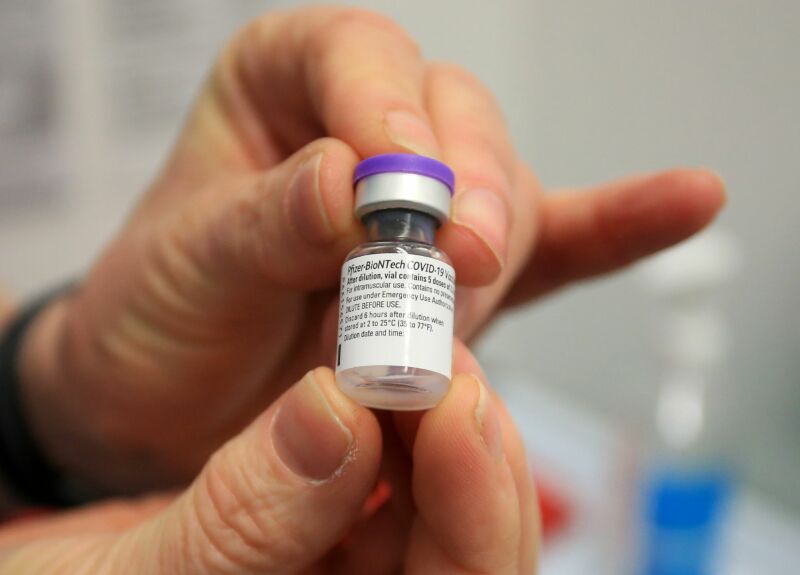
The Federal government has reached a deal with drugmaker Pfizer to secure an additional 100 million doses of the Pfizer-BioNTech COVID-19 vaccine before the end of July, the company said today.
Under the terms of the new agreement, the government will pay $1.95 billion for the additional doses. Of the new vaccine doses, 70 million are due by June 30, with the remaining 30 million to be delivered no later than July 31. The agreement also provides US authorities with the option to order up to 400 million additional doses of the vaccine later.
Health and Human Services Secretary Alex Azar said in a statement that the additional Pfizer vaccine “can give Americans even more confidence that we will have enough supply to vaccinate every American who wants it by June 2021,” when added to the 100 million doses the US government has already agreed to purchase from Pfizer, as well as the recently approved Moderna vaccine.
The government has likewise ordered a total 200 million doses of the Moderna vaccine, which is now also in use. Each vaccine requires each person receiving it to get two doses, so 400 million total doses is enough to immunize about 200 million people.
A rocky road
Pfizer initially offered the additional doses in its first round of talks with the US government in July, The New York Times was first to report. At that time, the feds agreed to an initial order of 100 million doses but repeatedly declined to lock in an order for between 100 million and 500 million additional doses, “despite repeated warnings from Pfizer officials that demand could vastly outstrip supply.”
When US officials declined to make a commitment, Pfizer instead reached agreements with other nations to sell the vaccines it could manufacture. In order to reach the new deal with Pfizer to secure an additional 100 million doses in the first half of 2021, the government agreed to invoke the Defense Production Act to give the company access to specialized supplies it needs to ramp up production, The New York Times reported.
The Food and Drug Administration granted emergency use authorization for the Pfizer vaccine very late on Friday, December 11. Shipments of the vaccine to facilities nationwide began almost immediately, and the first immunizations of health care workers were underway on the following Monday morning.
Shortly after the first wave of vaccines went out, however, distribution hit bumps. More than a dozen states found they’d be receiving significantly fewer doses than anticipated—half or less of the expected volume—in the second week of vaccine distribution. States, naturally, asked the feds, and HHS’s Azar identified the “core issue” as “Pfizer’s ability to manufacture” vaccine fast enough around “production challenges.”
However, Pfizer in a statement pointed a finger squarely at the US federal government for the snafu.
“Pfizer is not having any production issues with our COVID-19 vaccine, and no shipments containing the vaccine are on hold or delayed,” the company said on December 17. “This week, we successfully shipped all 2.9 million doses that we were asked to ship by the U.S. Government to the locations specified by them. We have millions more doses sitting in our warehouse but, as of now, we have not received any shipment instructions for additional doses.”
https://arstechnica.com/?p=1731664

